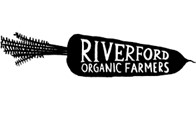
Design and evaluation of peat-free blocking media
Project team
Principle Investigator: Francis Rayns
Margi Lennartsson-Turner
Ulrich Schmutz
Leonardo Faedo
Judith Conroy
Gemma Foster
Richard Collins
Collaborators
Lead: Riverford Organic Farmers Ltd
Partner: Delfland Nurseries Ltd
Duration of project
1 April 2023 to 31 March 2025
Funder
UKRI Innovate UK
Value of project
£225,554


Project overview
The production of field vegetables and salad crops is highly dependent on transplanted seedlings that are grown in media often containing peat. The mining of peat has adverse environmental consequences including the release of CO2, biodiversity loss and increased risk of flooding and is consequently being phased out by the UK government.
Commercial peat-free growing media have been developed – although these are suitable for use in plastic modular trays they are not cohesive enough to produce the larger 'pressed blocks' that are more widely used by growers for certain key crops. Furthermore, few organic solutions exist, despite this being a growing market sector.
This project will develop organic, peat-free growing media suitable for producing blocks that can be handled by existing machinery at both the plant nursery stage and during transplanting into the field. The findings will also be relevant for conventional production as the basic problem of ensuring the integrity of the blocks from sowing until transplanting is the same.
The project will investigate a range of potential materials, concentrating on materials available in the UK to provide a resilient, locally-based solution. The selection of test materials will be made following a literature review and assessment of the 'state of the art' through consultation with growing media industry representatives. Investigations will ensure that the media hold together throughout the whole process of pressing, seeding, seedling growth, transport, and planting in the field. To build on the measurements made of the properties of particular blends a computer model will be developed to quantify the effect of the various ingredients.
The most successful media will be identified for subsequent testing by Delfland Nurseries. Delfland will evaluate the performance of selected growing media blends, in comparison with a peat based control, using commercial scale equipment and facilities. Replicated trials will assess the growth and quality of test crops of lettuce transplants. The plant transplants from these trials will be further evaluated after planting out by Riverford Organic Farmers, on certified-organic land and using farm scale equipment to determine the robustness of blocks and the effect of the media on crop yield and quality.
Finally, to determine economic viability of the novel peat-free growing media, a farm-business cost-benefit analysis will be conducted using partial budgeting methodology to consider all relevant stages of the bio/eco-economy supply chain. The wider environmental effects of each of the proposed materials and blends will also be quantified.
Videos
The latest project video can be viewed here.
Also watch this YouTube video for more information on the project, and take a look at the spring update YouTube video and Peat free trails - Autumn update - YouTube.
Project objectives
- To identify all local organic materials which could be utilised to formulate blocking media and understand their physical and chemical properties.
- To explore the best combinations of materials to design and create suitable prototype blocks.
- To test block prototypes using plant growth trials.
- To assess which prototypes offer the most promise, once refinement and additional testing is complete, for sale as a blocking media throughout the UK.
Impact statement
Impact: This project will advance scentific knowledge concerning plant growing media, specifically with regard to the physical,chemical and biological characteristics of a range of novel material blends used to create pressed blocks. This will benefit farmers and growers within the UK and worldwide.
Environmental benefits: This project will undertake an environmental assessment of alternative blocking media identified within the trial and this is expected to indicate a significant reduction in CO2 emissions resulting from the adoption of peat-free blocking-media, compared to peat blocks. By developing the use of home-grown peat-free blocking media, nurseries / farms will be less reliant on imports, therefore making the sector more resilient to changes in currency rates and import issues. This will also open-up the option of more UK businesses developing supply chains for home-grown blocking media.
Economic benefits exist for farmers who can continue to use blocks which are more reliable than modules (which can currently be produced without peat, but are considered sub-optimal). By developing the use of home-grown peat-free blocking media, nurseries will be less reliant on imports, therefore making the sector more resilient to changes in currency rates and import issues. This will also open-up the option of more UK businesses developing supply chains for home-grown blocking media.
Outputs
Subject to the IP agreements that will be established at the start of the project academic papers will be published describing the evaluation of the novel growing media blends, their performance when used for block transplant production and implications of their use on economic and environmental sustainability of agricultural systems.




